
Hitler did not want to fight for North Africa in 1941, his eyes were staring eastwards towards steppe not desert. Egypt was the prize his ally Benito Mussolini coveted. Yet Il Duce's ill-judged invasion of Greece was compounded by failure in Libya when Generals Wavell and O'Connor's strike in December 1940, Operation Compass, heralded disaster for Italy. Erwin Rommel was sent in with meagre forces, and grudgingly, to stem the rot. But this tortoise turned into a hare. The Desert Fox - generally at odds with his hosts and nominal superiors, not to mention High Command, was a maverick genius who began to rapidly turn the tide. It kept turning. The pendulum of war in the Western Desert began to swing, and it swung back and forth through abortive British offensives, Brevity and Battleaxe, then more tellingly with Claude Auchinleck's Crusader offensive.
But Rommel wasn't daunted. He struck back, harrying the Allies eastwards, past Gazala and Mersa Matruh, into Egypt and the El Alamein Line. Auchinleck saw him off in the First Battle of El Alamein (1-27 July 1942) but failed to mount a successful counterstroke. By now Churchill, desperate for a convincing victory, had had enough of 'The Auk' and his mercurial Chief of Staff Eric Dorman-Smith. He appointed General Harold Alexander to overall command and gave 8th Army, firstly to William Gott, whose death in a plane crash then cleared the path for Bernard Montgomery.
Alexander's instructions were plain, as set out in a directive on 10 August: 1 Your prime and main duty will be to take or destroy at the earliest opportunity the German-Italian Army commanded by Field-Marshal Rommel together with all its supplies and establishments in Egypt and Libya.
هذه القصة مأخوذة من طبعة Issue 113 من History of War.
ابدأ النسخة التجريبية المجانية من Magzter GOLD لمدة 7 أيام للوصول إلى آلاف القصص المتميزة المنسقة وأكثر من 9,000 مجلة وصحيفة.
بالفعل مشترك ? تسجيل الدخول
هذه القصة مأخوذة من طبعة Issue 113 من History of War.
ابدأ النسخة التجريبية المجانية من Magzter GOLD لمدة 7 أيام للوصول إلى آلاف القصص المتميزة المنسقة وأكثر من 9,000 مجلة وصحيفة.
بالفعل مشترك? تسجيل الدخول
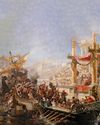
NAUMACHIA TRUTH BEHIND ROME'S GLADIATOR SEA BATTLES
In their quest for evermore novel and bloody entertainment, the Romans staged enormous naval fights on artificial lakes
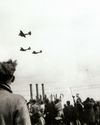
OPERATION MANNA
In late April 1945, millions of Dutch civilians were starving as Nazi retribution for the failed Operation Market Garden cut off supplies. eet as In response, Allied bombers launched a risky mission to air-drop food

GASSING HITLER
Just a month before the end of WWI, the future Fuhrer was blinded by a British shell and invalided away from the frontline. Over a century later, has the artillery brigade that launched the fateful attack finally been identified?
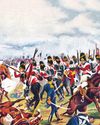
SALAMANCA
After years of largely defensive campaigning, Lieutenant General Arthur Wellesley went on the offensive against a French invasion of Andalusia

HUMBERT 'ROCKY'VERSACE
Early in the Vietnam War, a dedicated US Special Forces officer defied his merciless Viet Cong captors and inspired his fellow POWs to survive
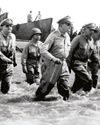
LEYTE 1944 SINKING THE RISING SUN
One of the more difficult island campaigns in WWII's Pacific Theatre saw a brutal months-long fight that exhausted Japan’s military strength

MAD DAWN
How technology transformed strategic thinking and military doctrine from the Cold War to the current day
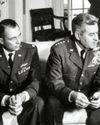
BRUSHES WITH ARMAGEDDON
Humanity came close to self-annihilation with the Cuban Missile Crisis, Broken Arrows’ and other nuclear near misses
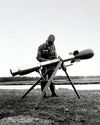
THE DEADLY RACE
How the road to peace led to an arms contest between the USA and USSR, with prototypes, proliferation and the world’s biggest bomb

THE MANHATTAN PROJECT
Einstein, Oppenheimer and the race to beat Hitler to the bomb. How a science project in the desert helped win a war